The remaining members of the Mujahedin-e Khalq Organization aka MKO have been evicted from Camp Ashraf in Iraq’s eastern Diyala Province and been moved to Camp Liberty ,a base near the capital, Baghdad on September 11,2013 .
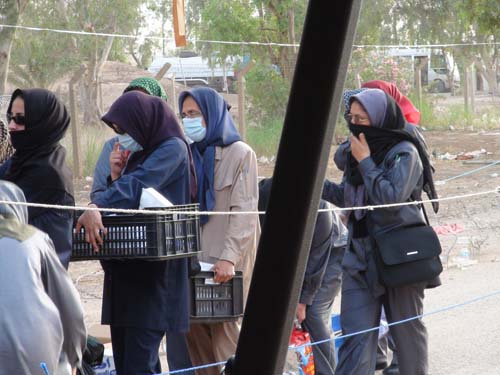
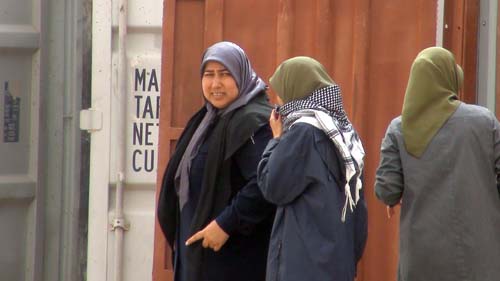
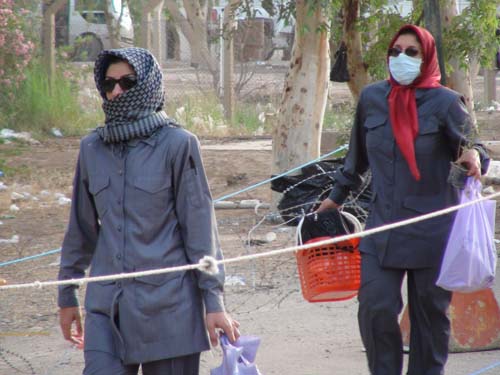
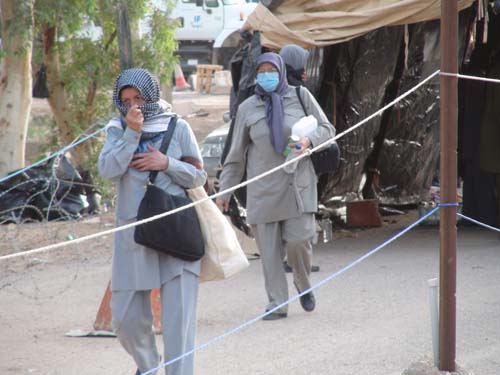
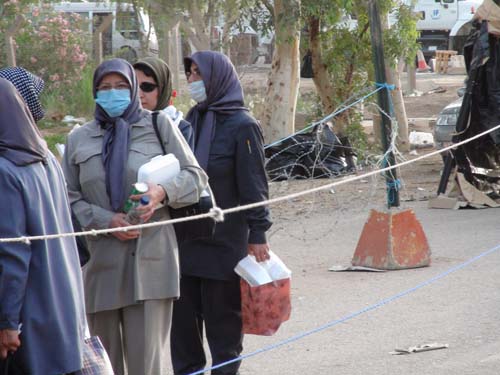
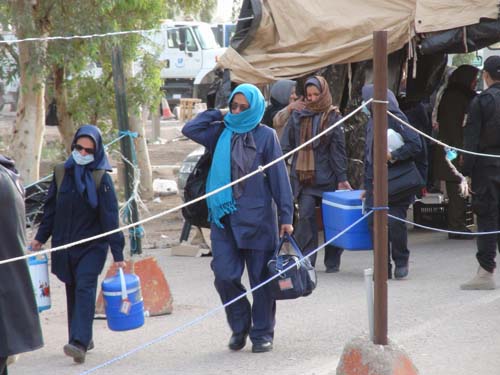
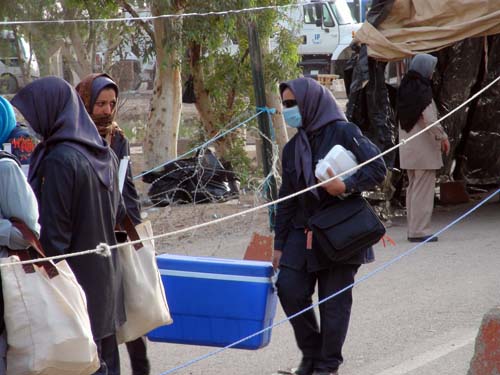
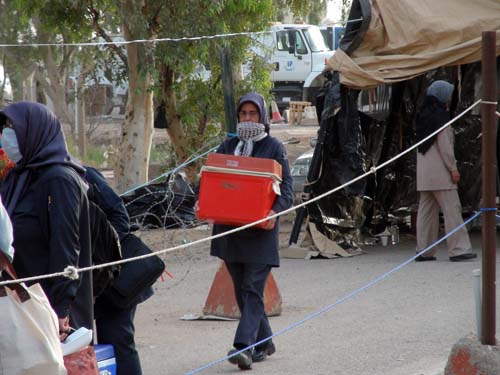
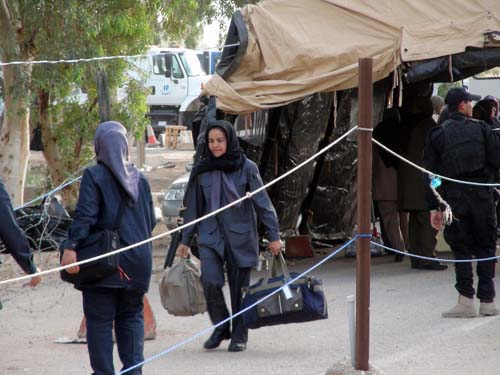
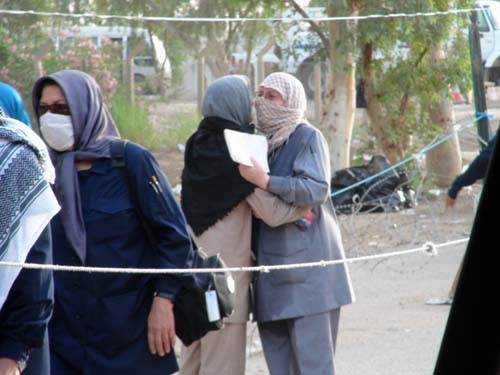
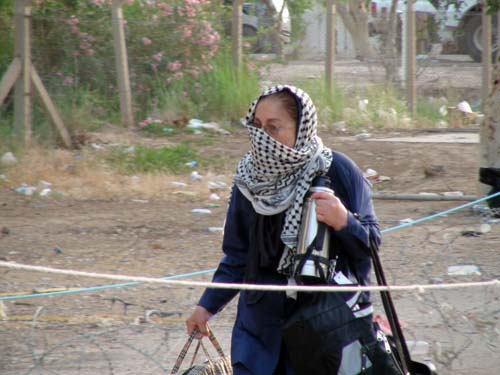
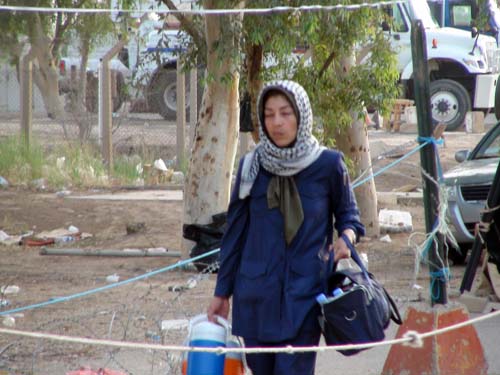
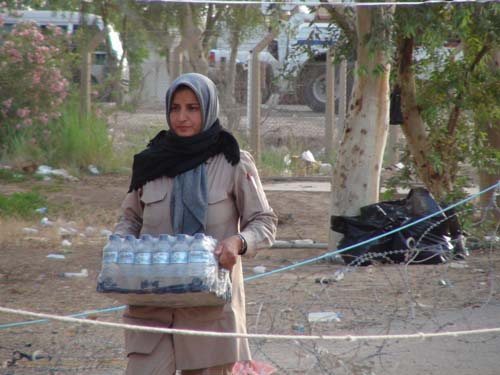
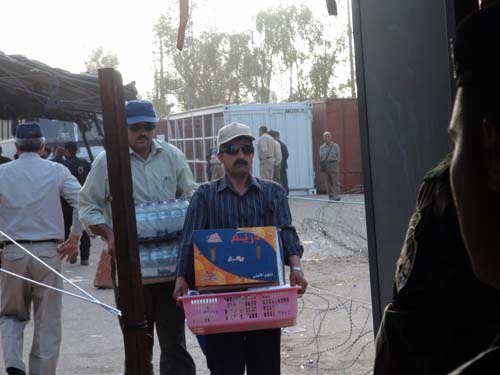
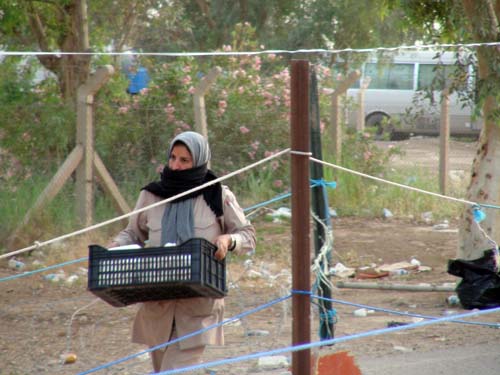
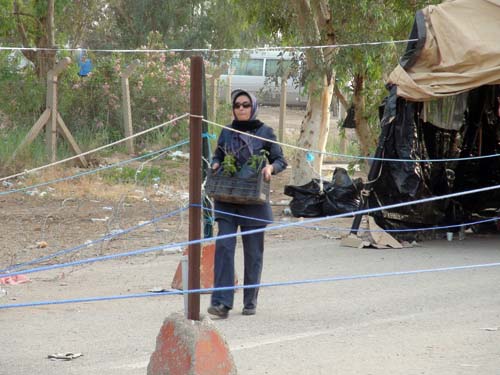
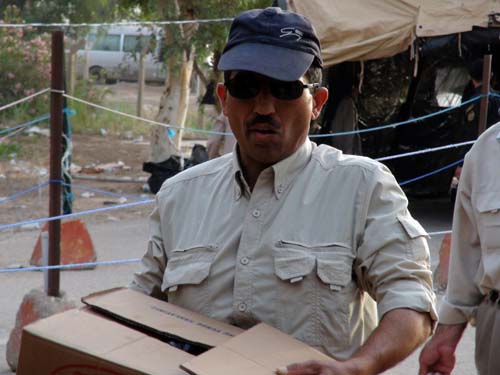
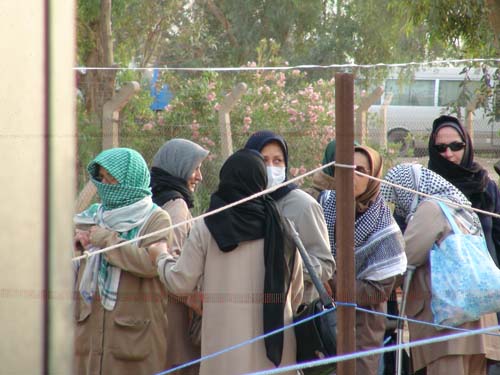
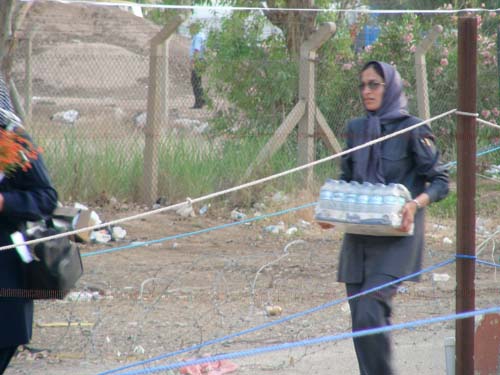
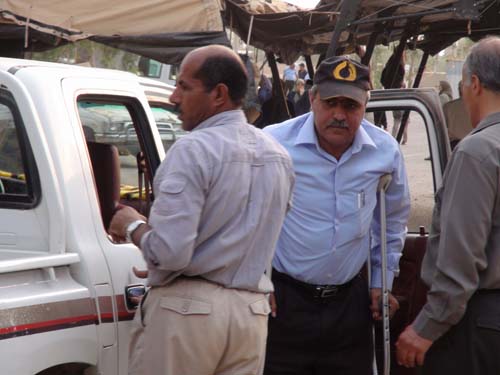
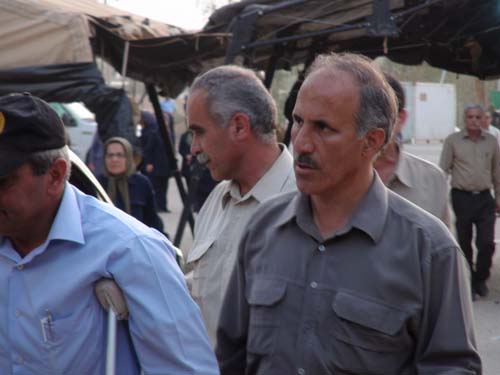
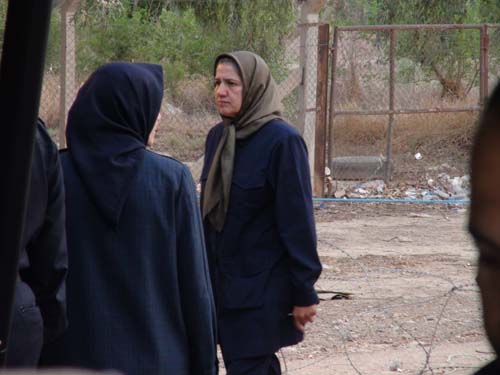
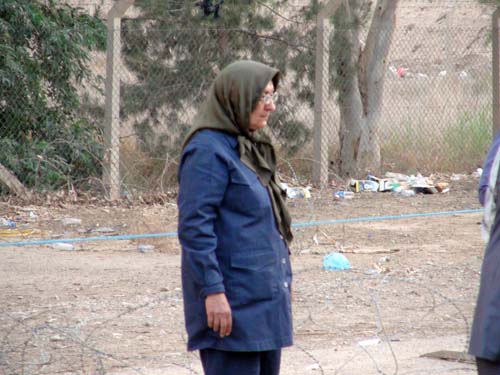
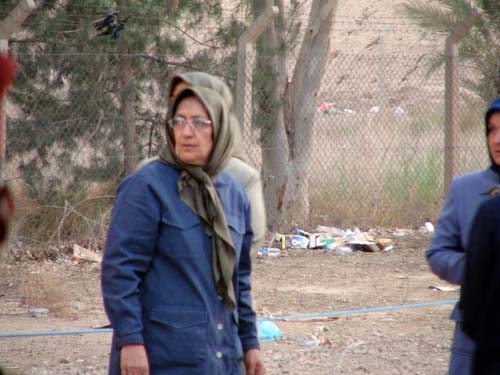
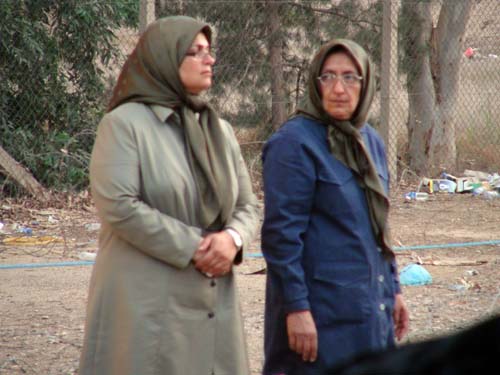
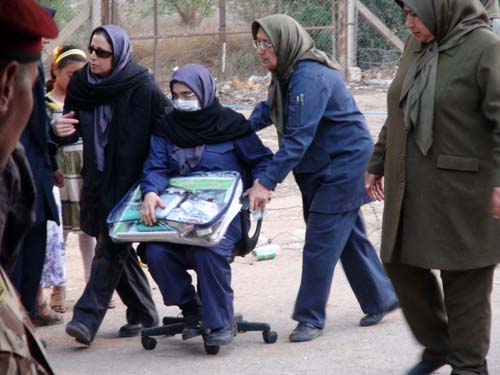
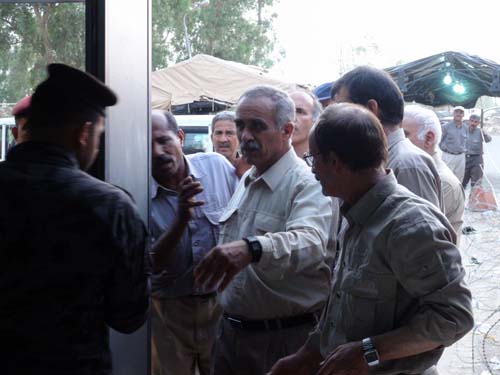
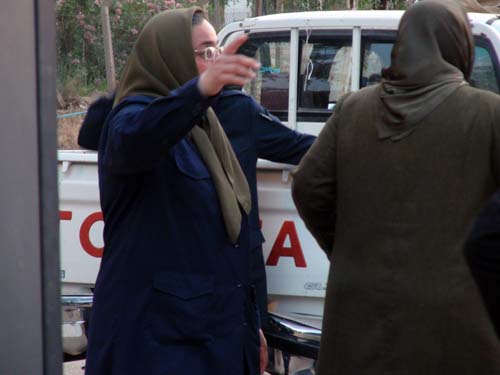
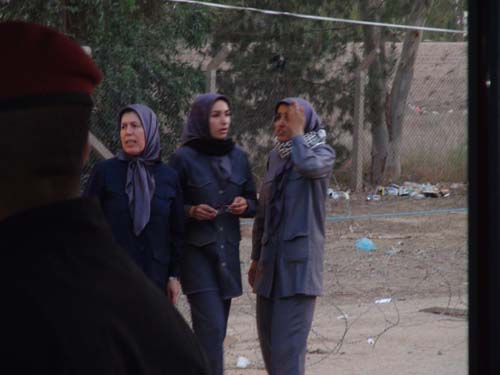
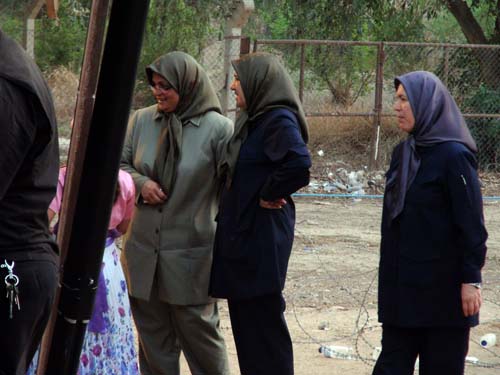
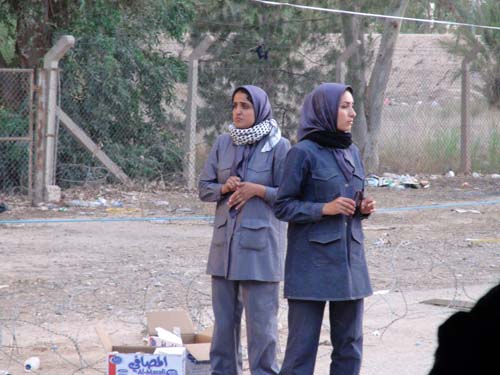
German media reported of an order issued to relocate a number of members of the Mujahedin Khalq Organization from Iraqi Camp Liberty to Germany. The United Nation representatives and German government agreed to transfer 97 resident of Camp Liberty.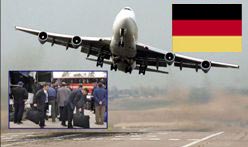
German newspaper, Kolner Stadt –Anzeiger published in Cologne reported that German government has ordered the city officials to receive 77 people of the refugees.
The 97 Liberty residents are among those who have already had refuge files in Germany. They had been sent to Iraq by the group during Saddam’s regime, according to the German daily.
The report adds that the city officials including Mr. Guido Kahlen the director of Cologne city council seriously protested the decision. They consider the presence of those people with records of military, terrorist and cult-like activities as a risk security of Koln citizens.
Based on the agreement signed by Iraqi government and the UN, members of the MKO who are currently residing in Camp Liberty near Baghdad, are supposed to be received by third countries as refugees. So far Albania has agreed on the relocation of 210 members of the group. About 80 of these residents have been already transferred to Albania.
Deputy Assistant Secretary of State Brett McGurk visited Camp Hurriya in Baghdad, September 16, accompanied by Gyorgy Busztin, Deputy Special Representative of the Secretary General for the United 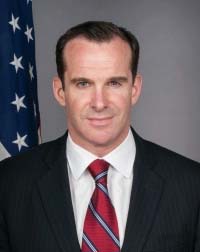 Nations Assistance Mission for Iraq (UNAMI). DAS McGurk met with senior representatives from the Mujahedine-e-Khalq (MEK), as well as officials from the United Nations High Commission for Refugees (UNHCR). He expressed his condolences to the survivors of the recent Camp Ashraf attack and emphasized the priority of the U.S. Government to ensure the safety and security of the residents of Camp Hurriya. He praised the efforts of UNAMI, and Mr. Busztin personally, to ensure the safe and secure relocation of the survivors from Camp Ashraf to Camp Hurriya last week.
Nations Assistance Mission for Iraq (UNAMI). DAS McGurk met with senior representatives from the Mujahedine-e-Khalq (MEK), as well as officials from the United Nations High Commission for Refugees (UNHCR). He expressed his condolences to the survivors of the recent Camp Ashraf attack and emphasized the priority of the U.S. Government to ensure the safety and security of the residents of Camp Hurriya. He praised the efforts of UNAMI, and Mr. Busztin personally, to ensure the safe and secure relocation of the survivors from Camp Ashraf to Camp Hurriya last week.
He also discussed issues related to the safe, permanent, and secure relocation of the camp’s residents outside of Iraq, and affirmed the U.S. policy to take active measures in support of such relocation to third countries as soon as possible. DAS McGurk encouraged the residents to cooperate fully with the UNHCR process to facilitate their safe and permanent relocation outside of Iraq. Finally, he thanked UNAMI and UNHCR for their tireless efforts in Iraq and ensured the ongoing cooperation and support for their efforts by the United States.
American Embassy, Baghdad
As usual, when a crisis erupts among the Mojahedin Khalq in Iraq, the world and his dog are ready to jump in and use it as a platform to push their own agenda based on their own interpretation of events.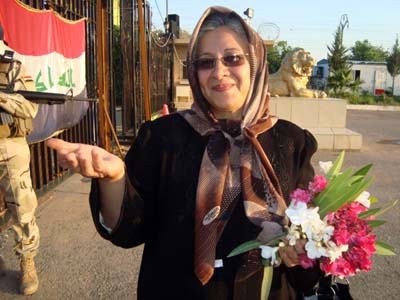
We have US lobbyists in Washington telling the UN – which is conducting an investigation on the ground – not only who perpetrated the attack but also what to do about it. We have Iran dancing with joy over the ‘elimination’ of its enemies, though more circumspectly adding that Iran itself will pursue vengeance through legal channels.
It’s easy to sit outside the country and talk. It’s easy to hold the Iraqis responsible for everything that happens in their country in disregard of the blatant interference from every side.
The long suffering government of Iraq – which is also conducting an investigation of its own – yet again reminds UNAMI and Western governments that the MEK cannot stay in their country. For thirty years the Mojahedin Khalq has been working there for the benefit of America and western interests; which paid a middleman called Massoud Rajavi for their services. The MEK consequently killed thousands of Iraqis. The country cannot now be expected to continue to play host to such a terrorist group.
But behind all the noise and squabbles of the various political bodies there echoes a profound silence. We never, ever get to hear from the people who are themselves directly involved, the MEK rank and file. Of course, on September 1st, the day of the attack on Camp Ashraf, the MEK leadership almost instantly broadcast its own ‘Hollywood Blockbuster’ version of events, with films of the assailants creeping up on the camp and graphic pictures of the aftermath; images replete with contradictions and inconsistencies.
But what of the victims, those survivors and injured who have now been taken to Camp Liberty? What of the people already in Camp Liberty? We never get to hear how they feel, nor about whether they are worried about being the next targets, nor about how they want their futures to unfold.
For American politicians and lobbyists these individuals are only pawns in a political game which they propose to win at all costs. For the Iranians and the Iraqis these are terrorists who do not deserve a voice. More importantly, as UNAMI officials can confirm, the people in Camp Liberty are being held incommunicado by the leaders of the cult. And as long as the MEK plays its valuable role as a brand on which to hang an advertising campaign then nobody is looking for a solution.
However, America has a moral duty toward these individuals who have done so much for them. America also has an international obligation to the government of a sovereign Iraq after ‘liberating’ the country from former American ally Saddam Hussein and killing hundreds of thousands of Iraqis in the process. America must put pressure on the MEK leaders to finally get out of Iraq, to open up the camp and allow the residents to leave as individuals and not as members of a terrorist group. This of course simply requires quiet, dignified co-operation with the UN and Iraqi officials who are there to oversee and facilitate exactly this occurrence. Even the MEK’s own Iranian supporters in the west are begging the leaders for such co-operation.
Once it is acknowledged that the residents of Camp Liberty are individuals and not pawns to be deployed or destroyed, and the MEK leaders are required to restore their basic freedoms, then solutions as to what can be done with them will not be difficult to find. First and foremost of these is to reunite them with their families. The 52 people who died in Camp Ashraf all had families. The remainder who have been transferred to Camp Liberty all have families, as do all the other residents there. Since 2003 many of these families have sought contact with their loved ones and been denied by the MEK leadership who are afraid of the compassionate influence their presence exerts over their loved ones. In 2009 a determined group of families set up a permanent picket outside Camp Ashraf resulting in the decision of several MEK to leave the camp and return to civilian life; this gradual process of attrition continues at Camp Liberty. Observers on the ground are in no doubt that had families still been permitted to remain there as a normalising presence, then the events of September 1st would not, could not have occurred.
When looking for a permanent solution for the residents, anybody with any sincerity must acknowledge that the involvement of these people’s families can offer the emotional, financial and mental security needed for them to return to normal life wherever they finally settle. Beyond this, the normalising presence of families at Camp Liberty will forestall the opportunity for further attacks.
Middle East Strategy Consultants,
On Friday September 13th, another group of MKO members residing at Camp Liberty as a temporary transit location transferred to Albania, reported by Mohammad Karami – MKO former member. 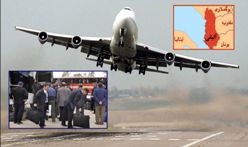
This is said to be the ninth group on the series of relocations to Albania.
A total number of 159 members have been relocated to Albania before this latest resettlement, based on the report.
Tirana has offered to house some 210 members of the MKO in Albania.
For years, the UN has been searching for countries willing to host the MKO members.
"Resettlement outside Iraq is now the priority, and it is urgent that countries ready to host the residents come forward to accept them, providing them a safe future outside Iraq," UN deputy special envoy Gyorgy Busztin said in a statement after the September 1st clashes at Camp Ashraf.
Some Liberty residents have decided not to attend interviews with UNHCR to process their cases
Update No. 6
Camp New Iraq (formerly Camp Ashraf) residents and the processing of their cases for solutions*
UNHCR has expressed continued deep concern for the safety and security of the residents in the Hurriya  Temporary Transit Location (TTL), following the second deadly attack on 15 June. UNHCR reiterated the urgent need for enhanced physical protection, asking the Government of Iraq to do everything in its power to guarantee the security of the residents.
Temporary Transit Location (TTL), following the second deadly attack on 15 June. UNHCR reiterated the urgent need for enhanced physical protection, asking the Government of Iraq to do everything in its power to guarantee the security of the residents.
Invoking their security concerns following the two attacks on Camp Hurriya, a number of residents have decided not to attend interviews scheduled for them with UNHCR to process their cases. Nevertheless, pursuant to the Memorandum of Understanding between the United Nations and the Government of Iraq of 25 December 2011 on the situation of the residents of Camp New Iraq, UNHCR continues to process the applications of the residents who have been transferred, on a voluntary basis, to Camp Hurriya and who engage with UNHCR.
Camp residents who have submitted requests for international protection are formally asylum-seekers under international law. In the absence of a national system of adjudication in Iraq, UNHCR is considering these requests on an individual basis in an appropriate procedure. Individual interviews are taking place – with those who engage – in a safe and neutral location, and in full confidentiality. Transmittal to States of the cases of those with determined international protection needs is ongoing. Pending their relocation outside Iraq, the residents are in transit in Camp Hurriya, while their claims are being processed, as provided for in the above-noted Memorandum of Understanding.
International law requires that asylum-seekers must be able to benefit from basic protection of their security and well-being. This includes protection against any expulsion or return to the frontiers of territories where their lives or freedom would be threatened (the non-refoulement principle) as well as treatment in accordance with basic humanitarian standards – including, most importantly, their security. The primary responsibility for ensuring respect for these standards lies with the Government of Iraq. Freedom of movement is the most desirable state while processing takes place.
UNHCR, together with the Government of Iraq, UNAMI and other concerned actors, including importantly the international community, remains committed to doing its part in finding peaceful solutions to this long-standing problem. Accordingly, UNHCR and UNAMI are continuing their combined efforts to find solutions, including relocation opportunities, for the residents who wish to depart Iraq. To date a total of 135 residents have departed to other countries.
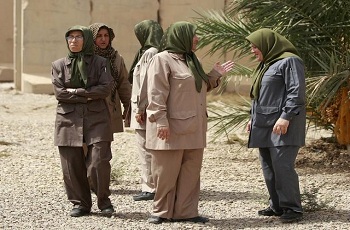
Those lobbying to return MKO members to Ashraf are building the altar to scarify them
It is no more the question of keeping forces on alert near the Iranian borders looking for an opportunity to strike at the pillars of the regime to inherit the reins of power after its fall. Rather, it is a desperate need to protect very same disarmed forces against any attack that threaten their life just in the middle of Iraq. The members of MKO deserved any form of confrontation when they were fully armed with Saddam’s donated weapons to be used against Iranian and Iraqi people. Now the deplorable condition of these poor men, the outcasts of a failed militia with a countless record of bloodshed, call for a universal decisiveness to save them, now wallowed in the mire of a personality cult.
The UN special envoy to Iraq, Martin Kobler, knows well, if not better than anybody, what is going on within Camp Liberty, the temporary camp that houses these people, when he expressed concern at human rights abuses therein. In his latest remarks, Mr. Kobler cited reports from some residents that camp leaders are keeping residents from leaving, from participating in the resettlement process, from contacting family members outside Iraq, and from medical treatment.
And what is the response by the group’s leaders to end the sufferings of the members? We witness everyday protests and demonstrations by sympathizers and supporters of MKO outside UN headquarters and on the streets of the European countries calling for the protection and guaranteed rights of the residents as well as condemning Mr. Kobler. In her recent attack, Maryam Rajavi, the self-appointed president elect of the group, strongly condemned Kobler for what she referred to as deceitful efforts to present false reports to the Security Council and the UN Secretary-General.
The heavy propaganda and lobbying struggle by MKO’s widespread network in European countries demanding to return Camp Liberty residents to their previous camp, Camp Ashraf, is no more considered a humanitarian gesture to save suffering members. Everybody knows that Camp Ashraf does not qualify a more secure place than Liberty. The number of the insiders killed in Camp Ashraf when MKO’s leaders deliberately provoked a few confrontations with Iraqi forces, many of whom were happy to avenge the ethnic cleansing raids the group carried out for Saddam back in the day, exceeds those killed in Camp Liberty’s mortar attacks. Mr. Kobler had also provided a warning of the group’s potentiality in provoking and waging violence at the time.
Is Camp Ashraf really a sanctuary and does MKO care about the safety and protection of the abandoned insiders in Iraq? The first reaction the Iraqi Government received from MKO after announcing its decision to close Camp Ashraf in a decision to expel its residents from the country was an angry backlash and threatening tone. And the first practical approach by MKO was to provoke the Iraqi forces, not acquainted with the group’s self-destructive tactics, to mount an aggressive response to evacuation of Ashraf. Then, anyone can say what would be the fate of the insiders if they were ever permitted to return to Camp Ashraf.
MKO is at the end of line in Iraq and it has enough devoted members active under a pro-democracy masquerade around the world. But MKO is facing a conundrum over the insiders’ future uncertainty in Iraq, a big bulk of members still waiting to be accepted as refugees in third countries. The problem can be solved in the way that would best benefit MKO. What the group needs at the present to fuel its propaganda machine for a full move is sacrifice. Where else can MKO leaders find a better slaughter house than Camp Ashraf to make about 3000 martyrs? In fact, those lobbying to return members to Ashraf are building the altar for MKO to scarify poor insiders.
A total number of 109 MKO members transferred from Camp Liberty, Iraq to Tirana, The Albania Ministry of Interior Affairs announced, as reported by Aria Iran Association.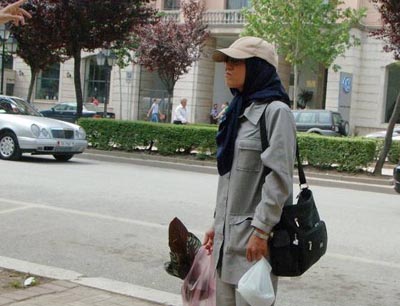
The Albania Interior Ministry declared that since early July 2013 up to now, 38 liberty residents arrived safely in Tirana and resided in the Camp “Barbo”. These people departed, Iraq to “Rinas” airport in groups of 7, 14 and 17 people under the severe security measures.
The Liberty Residents relocate to Tirana by the help of the UNHCR. Albanian Government has made the Ministry of Interior Affairs as well as security and refugee organizations to supervise the humanitarian needs of the peoples transferred.
Based on the agreements between Albania and US, The Albania government accepted to accommodate 210 members of the MKO in Albania. So far 109 people have been transferred to Tirana and the remaining 101 camp Liberty residents will be relocated in small groups as well.
Following the UN Envoy Martin Kobler reports on the human rights violations by leaders of the Mujahedin-e Khalq against its members in Camp Liberty, the Albanian Interior Ministry confirmed the accusations and underlined that the offer to grant asylum to the Liberty residents is to prevent more bloodshed.
UN Envoy: Mujahedin-e Khalq Leaders Abusing Followers in Iraq
Won’t Let Residents of Iraq Camp Leave
UN Envoy Martin Kobler has detailed growing complaints about human rights violations by leaders of the Mujahedin-e Khalq (MeK), an Iranian rebel faction, against its followers in Iraq’s Camp Hurriya.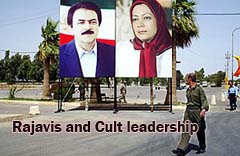
The MeK was a long-standing member of the US State Department’s list of terrorist organizations, but after heavy lobbying the group was dropped from the list last year. The group was allied to Saddam Hussein and retains a significant presence at Hurriya, and formerly Camp Liberty during the US occupation.
Accord to Kobler, the UN receives “hundreds” of reports every day about violations by MeK leaders against people inside Camp Hurriya, restricting their movement, forbidding them from contacting family members, and keeping them from leaving to participate in a UN resettlement effort.
MeK spokesman Shahin Gobadi angrily rejected the allegations, insisting they are “baseless” and accusing the UN of covering up Koblers “lies” against their organization. MeK leaders insist the US remains responsible for their safety.
by Jason Ditz
UNITED NATIONS – The outgoing U.N. special envoy to Iraq on Tuesday accused the leaders of an Iranian dissident group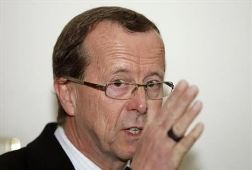 at a camp in Iraq of human rights abuses, an allegation the movement dismissed as baseless.
at a camp in Iraq of human rights abuses, an allegation the movement dismissed as baseless.
Members of the Iranian dissident group Mujahadin-e-Khalq living in Camp Hurriya near Baghdad have been transferred there from Camp Ashraf north of the Iraqi capital, where they had lived for nearly a decade until last year.
The group and its political wing, the National Council of Resistance of Iran, have complained repeatedly about the conditions at Camp Hurriya, formerly known as Camp Liberty, and security problems.
U.N. envoy Martin Kobler, who will take up a similar position in the Democratic Republic of Congo next month, told the Security Council that the United Nations had received complaints about the Iranian group’s leadership at the camp.
"Of increasing concern are the human rights abuses in Camp Hurriya itself by the camp leadership," Kobler said. "Hundreds of daily monitoring reports suggest that the lives of Camp Hurriya members are tightly controlled."
"A significant number of residents have reported to U.N. monitors that they are not free to leave the camp, to participate in the resettlement process offered by UNHCR, to contact family members outside Iraq, or to have contact with other relatives even within the camp itself," he said, referring to the U.N. refugee agency.
Some Hurriya residents reported being denied access to medical treatment by camp leaders, while others spoke of verbal and other forms of abuse for disagreeing with camp leaders or voicing the desire to leave, Kobler said.
The Mujahadin-e-Khalq, taken off the U.S. list of terrorist organizations last year, calls for the overthrow of Iran’s Shi’ite Muslim clerical leadership. It fought alongside the forces of Iraq’s late Sunni Muslim dictator Saddam Hussein in the 1980-1988 Iran-Iraq war.
The group is no longer welcome in Iraq under the Shi’ite Muslim-led government that came to power after U.S.-led forces invaded and toppled Saddam in 2003. Some exiles say they suspect that Baghdad might be ready to send them back to Iran.
There have been two rocket attacks on Camp Hurriya this year, one in February and another last month. Some 10 residents were killed and 71 wounded.
‘PERSONALIZED ATTACKS’
Shahin Gobadi, a spokesman for the National Council of Resistance of Iran, denied the allegations of Kobler, whom the Iranian dissidents have long accused of lying and covering up facts about what they say are substandard conditions at Hurriya.
"These allegations are so baseless that the Iranian resistance has on 50 occasions called for an independent fact-finding mission to investigate all these claims and all other lies that Kobler has disseminated," he said.
"But neither Kobler nor the government of Iraq has agreed to any independent investigation."
The United Nations has defended Kobler and denied the allegations about a cover-up.
"We regret that MeK and its supporters continue to focus on public distortions of the U.N.’s efforts to promote a peaceful, humanitarian solution on Camp Ashraf and, in particular, its highly personalized attacks on the U.N. envoy for Iraq," U.N. spokesman Martin Nesirky said.
There are around 100 Iranians remaining at Camp Ashraf who refuse to leave, Kobler said. He described the situation at Ashraf as tense.
Last week lawyers for the families at Camp Hurriya held a news conference in New York to present a petition to the United Nations calling for an immediate return to Camp Ashraf.
The Mujahadin-e-Khalq insists that the United States, whose forces initially helped them settle in Ashraf after the 2003 invasion, still bears responsibility for their safety.
(Editing by Mohammad Zargham)
By Louis Charbonneau